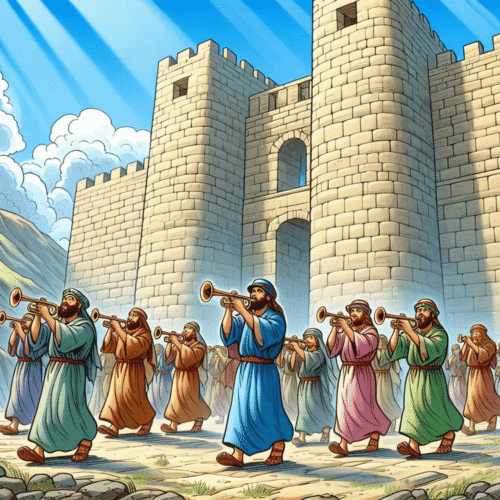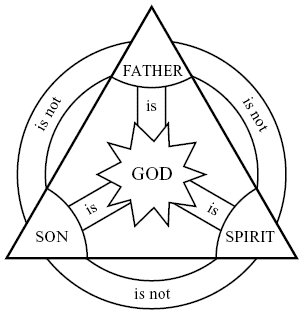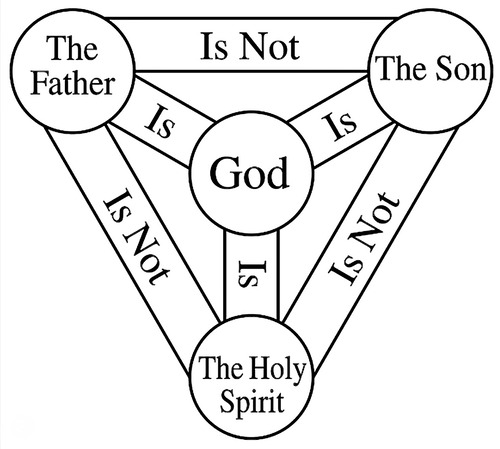Militant Yet Triumphant: How Can the Church Be Both?
The church exists in a fascinating paradox—one that’s beautifully foreshadowed in the Old Testament. Time and again, when God sent Israel into battle, He’d often instruct them they were being sent not so much to fight, as to worship. They were to loudly proclaim in song, “The Lord our God is good; His steadfast love endures forever.” In these moments, God was reminding His people “the battle is not yours but God’s” (2 Chronicles 20:15). These weren’t mere military strategies but profound theological declarations—victory was already secured by divine promise. Even before the first sword was drawn.
This enduring ancient pattern illustrates the church’s dual identity today. We’re an army engaged in fierce spiritual battle, while simultaneously also existing as a victorious assembly already celebrating its triumph. The tension between struggle and victory, between warfare and celebration is one of the most profound aspects of Christian identity. We advance into spiritual conflict with songs of victory already on its lips because the battle belongs to the Lord. How can the church be both militant yet triumphant? The apparent contradiction actually reveals a profound theological truth that has shaped Christian understanding for centuries.
THE CHURCH MILITANT (ECCLESIA MILITANS)
The “Church Militant” refers to believers still living on earth, actively engaged in spiritual warfare. This isn’t mere poetic language—it’s a biblical reality captured vividly in Paul’s exhortation to “put on the whole armour of God” (Ephesians 6:11) and his reminder that “we do not wrestle against flesh and blood, but against principalities, against powers” (Ephesians 6:12).
The militant aspect recognises Christians live in enemy-infested territory. The world remains under the sway of sin, death, and the devil. Christians face opposition from cultural pressures, internal temptations, and spiritual forces—all arrayed against the kingdom of God. The Church Militant must remain vigilant, disciplined, and steadfast.
John Calvin particularly emphasised this reality, noting the Christian life isn’t a comfortable journey but a challenging battlefield requiring constant vigilance. Yet, the militant church doesn’t fight for victory—it fights from victory, though the battle remains intense and the casualties real.
This militancy manifests in spiritual disciplines, evangelistic fervour, cultural engagement, and the daily mortification of sin. It explains why Christians often feel the tension between their citizenship in heaven and their pilgrimage through a world that remains hostile to God’s reign.
THE CHURCH TRIUMPHANT (ECCLESIA TRIUMPHANS)
In striking contrast is the “Church Triumphant”—believers who’ve completed their earthly journey and now dwell in the unfiltered presence of God. Revelation 7 pulls back the curtain to reveal this magnificent reality: “a great multitude that no one could number, from every nation… standing before the throne and before the Lamb” (Revelation 7:9).
The Church Triumphant has crossed the finish line. These saints no longer struggle against sin or doubt. They’ve exchanged the soldier’s armour for the victor’s crown, the battlefield for the banquet hall. They’ve attained what we still long for, and pursue.
This triumphant reality flows naturally from God’s sovereign promises. If salvation belongs entirely to the Lord—planned in eternity, purchased at Calvary, and preserved by the Spirit—then its completion is guaranteed. The same God who began the good work will bring it to completion (Philippians 1:6).
The triumphant church isn’t a separate entity from the militant church—it’s the same church viewed from different temporal perspectives. What we see partially now, they see in full. What we hope for, they possess.
THE THEOLOGICAL TENSION: ONE CHURCH IN TWO STATES
Herein lies a beautiful paradox—the church exists simultaneously in two states but remains one unified body. The distinction isn’t between two churches but between two conditions of the same church. This understanding preserves the unity of God’s people across all times and places.
This perspective has deep historical roots. The Westminster Confession speaks of the “invisible church” as consisting of “the whole number of the elect, that have been, are, or shall be gathered into one, under Christ the Head.” This definition intentionally spans both militant and triumphant aspects.
Theologians describe this as living in the “already but not yet” tension of God’s kingdom. We already possess the benefits of Christ’s victory—justification, adoption, the indwelling Holy Spirit—yet we haven’t yet experienced their full manifestation. We’re simultaneously victors and soldiers, feast-goers and fighters.
The dual identity explains why Christians can sing songs of victory even while wiping away tears, why we can claim Christ’s triumph even while confessing our ongoing struggles with sin. It’s not inconsistency—it’s living faithfully in the overlap of the ages.
LIVING IN THE TENSION: PRACTICAL APPLICATIONS
This theological truth shapes everyday discipleship in profound ways. It cultivates humility, as we recognise our ongoing need for grace while battling sin. Yet it simultaneously builds confidence, as we rest in the certainty of God’s promises.
The militant reality calls for spiritual disciplines—prayer, Scripture study, self-examination, and fellowship. It demands vigilance against temptation and boldness in confessing Christ. It explains why the Christian life often feels difficult.
Yet the triumphant reality infuses these struggles with hope. We fight knowing the war is already won. We persevere through suffering confident in our ultimate destination. We face death knowing it’s the doorway to perfect communion with Christ.
This tension shapes corporate worship as well. When the church gathers, we simultaneously confess our sins and celebrate our redemption. We lament the brokenness of our world while proclaiming Christ’s lordship over it. Our worship exists at the intersection of “now” and “not yet.”
HISTORICAL EXAMPLES FROM CHURCH HISTORY
Church history provides powerful examples of believers who embodied this dual identity. Consider the martyrs who faced death with supernatural joy, simultaneously experiencing the height of militant struggle and glimpsing triumphant glory.
Or consider believers under intense persecution who sing hymns of victory even while hiding from authorities. Their confidence isn’t naïve optimism but theological certainty—God’s purposes cannot be thwarted.
The perspective sustained the persecuted Huguenots in France, who continued worshiping despite severe oppression. It emboldened missionaries who left comfort behind to face hostile territories. It comforted believers watching loved ones die, knowing separation was temporary.
CONCLUSION: MILITANT YET TRIUMPHANT CHURCH
The church’s dual identity isn’t a contradiction but a divine design. The tension keeps us from two dangerous extremes—either a triumphalism that ignores present struggles or a defeatism that forgets our guaranteed victory.
By embracing both realities, we find strength for today’s battles and hope for tomorrow’s glory. We fight with confidence and anticipate with certainty. We walk the narrow path between presumption and despair.
The same church that struggles on earth celebrates in heaven. The same believers who carry crosses will wear crowns. The same Saviour who leads us through the valley guides us to the mountaintop.
This paradox doesn’t need resolution—it needs recognition. For in this tension, we find the heartbeat of authentic Christian experience: militant yet triumphant, battling yet blessed, struggling yet secure. Rooted in the unshakable promises of God.
MILITANT YET TRIUMPHANT CHURCH: RELATED FAQs
How does the concept of “already but not yet” specifically apply to the church’s militant yet triumphant nature? The “already but not yet” framework explains how believers simultaneously experience both victory and struggle. As Michael Horton explains, “We are not just waiting for a kingdom that is entirely future, but are citizens of a kingdom that has already broken into this present evil age.” This eschatological tension means Christians possess the firstfruits of redemption while awaiting its consummation, enabling us to be both soldiers in battle and citizens at rest in heaven.
- Does the Reformed view of predestination impact how we understand the church militant yet triumphant? Absolutely. RC Sproul emphasised “God’s sovereign election guarantees the church’s ultimate triumph while explaining its present struggles.” Predestination provides assurance that those currently fighting in the church militant will inevitably join the church triumphant, as nothing can separate the elect from God’s love. This creates a profound sense of security amidst spiritual warfare, knowing the outcome isn’t uncertain.
- How should the militant yet triumphant paradigm shape our approach to suffering? Suffering takes on new meaning when viewed through this dual lens. As Tim Keller notes, “Christian suffering is never meaningless; it’s always suffering with purpose because it’s suffering with Christ.” Our present afflictions—part of our militant experience—are producing an eternal weight of glory as we move toward our triumphant state. This perspective prevents both stoic resignation and despair, instead infusing suffering with redemptive significance.
How does this dual identity influence Reformed worship practices? Reformed worship intentionally reflects both militant and triumphant aspects of church identity. According to Bryan Chapell, “Our liturgy tells the story of moving from guilt to grace, from struggle to victory.” This explains why Reformed services often include confession of sin alongside celebratory communion, lament alongside praise, and prayers for strength alongside declarations of God’s faithfulness—all expressing the church’s existence in two realms simultaneously.
- Does the Militant yet Triumphant distinction have implications for Christian ethics? The dual identity fundamentally shapes Christian ethics by establishing an “ethic of the overlap.” Kevin Vanhoozer suggests “Christian ethics is essentially about living as citizens of heaven while still dwelling on earth.” This explains why believers simultaneously resist worldly systems while engaging them redemptively, why we contend against injustice while embodying grace, and why we maintain moral boundaries while extending radical welcome.
- How does this theological framework address the apparent decline of the church in Western culture? The militant yet triumphant paradigm offers perspective on cultural challenges. As Carl Trueman observes, “The apparent marginalisation of the church in Western society may well be part of its militant struggle, but cannot threaten its triumphant destiny.” This reminds believers that numerical decline or loss of cultural influence doesn’t contradict God’s promises, as the church’s true strength has never been in cultural dominance but in faithful witness amid opposition.
How does the communion of saints connect to the church militant yet triumphant? The communion of saints powerfully unites both dimensions of the church. Sinclair Ferguson writes, “When we worship, we join our voices with those already in glory—the great cloud of witnesses who have preceded us.” This means our worship transcends time and space, creating a mysterious but real fellowship between struggling saints on earth and glorified saints in heaven—all united in Christ as one body spanning both realms.
MILITANT YET TRIUMPHANT CHURCH: OUR RELATED POSTS
Editor’s Pick

What Did the Inscription on Jesus’ Cross Really Say?
A REFORMED RESPONSE TO CLAIMS OF GOSPEL CONTRADICTIONS Sceptics love to point out what they see as a glaring contradiction [...]

How Many Times Did the Rooster Crow at Peter’s Denial?
THE CHALLENGE When sceptics want to undermine Scripture’s reliability, they often point to Peter’s denial as Exhibit A for supposed [...]

Biblical and Systematic Theology: Why Do We Need Both?
TWO LENSES, ONE TRUTH Picture this familiar scene: A seminary student sits in the library, torn between two stacks of [...]

The Mysterious Two: Who Are the Anointed Ones in Zechariah?
Picture this: a golden lampstand blazing with light, flanked by two olive trees that pour oil directly into the lamp’s [...]

Regeneration Or Faith? Which Comes First in Salvation?
In the moment of salvation, does God regenerate our hearts first, or do we believe first? How we answer this [...]

Interracial Marriages: Does God Frown On Them?
The question hits close to home for many Christian couples and families today. As our churches become increasingly diverse, believers [...]
‘Because Angels Are Watching’: What Does 1 Corinthians 11:10 Mean?
“For this reason the woman ought to have authority on her head, because of the angels” (1 Corinthians 11:10, ESV). [...]

Why Does God Torment Saul With An Evil Spirit?
Would a holy God send an evil spirit to torment someone? This theological puzzle confronts us in the biblical account [...]

Paul’s Teaching on Women’s Roles: 1 Timothy 2:12 Explained
YARBROUGH’S BIBLICAL CASE FOR COMPLEMENTARIANISM In a world of shifting cultural values, few biblical texts generate as much discussion as [...]

What Does the Bible Really Mean By ‘The Flesh’?
8The phrase "the flesh" appears over 150 times in the New Testament, making it one of the most significant theological [...]






